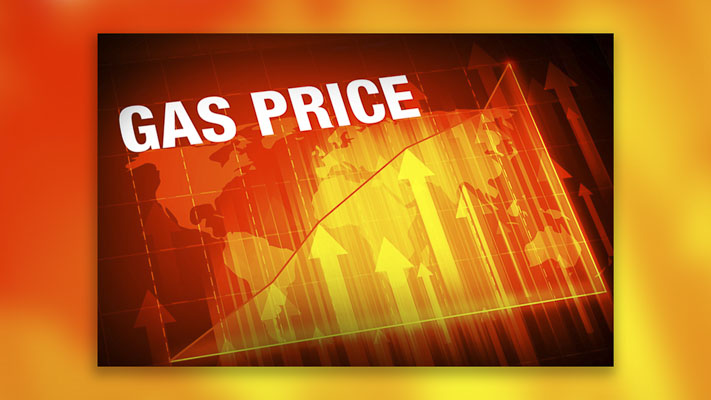
Todd Myers of the Washington Policy Center reports the potential impact of the new tax on businesses, including a possible $6.8 million in new taxes for the Camas-based WaferTech semiconductor plant
Todd Myers
Washington Policy Center
Key Takeaways:

- State’s new tax on CO2 emissions is projected to add 46 cents per gallon to 2023 gas prices
- An increase of 56 cents per gallon is projected for 2023 diesel prices
- By 2030, the new tax is expected to add 80 cents per gallon of gas
- By 2030, the new tax is projected to add 97 cents per gallon of diesel
- Current state gas tax is 49.4 cents per gallon, so the new tax is projected to nearly double taxes on gasoline paid by Washington residents
- Fiscal note on the cap-and-trade bill projected a $20.60 cost per metric ton of carbon emissions, a fraction of what the state Department of Ecology now predicts
- Environmental activists seek to remove protections from the cap-and-trade bill for energy-intensive, trade-exposed industries (EITE)
- Through 2026, EITEs are exempt from the tax on CO2 emissions. Starting in 2027, 97% of their emissions would be exempt. Denying exemption timeline could mean business failure and reliance on Chinese alternatives that pay little and cause environmental and human rights harm
Washington state’s new tax on CO2 emissions is projected to add 46 cents to the cost of a gallon of gas as soon as next year, the state Department of Ecology reports.
The Washington Research Council noted that an analysis from Vivid Economics and McKinsey & Company for Ecology projected the cost of a metric ton (MT) of CO2 to be $58.31 next year. That would add a tax of about 52 cents per gallon or just over 46 cents per gallon for fuels required to include 10% ethanol in accordance with Washington state law. For diesel, the tax on CO2 emissions would increase the cost of a gallon by about 59 cents per gallon, or 56 cents per gallon for fuels that include 5% biodiesel.
That amount would climb to $100.23 per MT in 2030, equating to 89 cents per gallon, or 80 cents per gallon for the 10% ethanol mix. For diesel, it would add more than a dollar, $1.02, per gallon, or 97 cents for diesel mixed with biofuel.
This is significantly higher than the $20.60/MT used in the previous projection given to legislators in the state’s fiscal note on the cap-and-trade bill, which agency staff called “conservative” at the time. Rather than a tax on CO2, the state system would sell permits to emitters for each MT of CO2, creating an artificial market. As a result, prices can fluctuate significantly, as these new estimates demonstrate.
The current state gas tax is 49.4 cents per gallon, so this would nearly double the amount of taxes Washington residents have to pay for gasoline.
These high costs also indicate how foolish a proposal to eliminate protections for energy-intensive, trade-exposed industries (EITE) would be. Under Washington’s CO2 tax law, industries that face global competition and may be harmed by high energy prices, such as food production or semiconductor manufacturing, are slowly phased in. Until 2026, EITEs are exempt from paying the tax on CO2 emissions. Starting in 2027, 97% of their emissions would be tax exempt.
These rules not only protect jobs in the state but prevent efficient and environmentally friendly manufacturing from moving to countries like China, where manufacturing is far more environmentally harmful and may include serious human rights violations.
For example, REC’s plant to produce solar-grade silicon is expected to re-start production at the end of 2023. Based on past emissions levels, without the exemption, REC could face up to $9.2 million in taxes on CO2 emissions from the plant. If those taxes forced the plant to close again, the demand for solar panels could be met by Chinese manufacturers, some of whom use forced labor by Uyghur minorities.
The EITE exemption is not only good for Washington’s economy, but for the environment, and human rights.
Despite that, Front and Centered, a left-wing climate activist organization, recently released a report calling for the removal of protections for EITEs. The most likely outcome of this approach would actually be to increase global CO2 emissions, increasing harm for the groups Front and Centered claims to care about. We have already seen this with the idling of the aluminum plant in Ferndale due to international competition.
Solar and aluminum manufacturers aren’t the only ones who would be hit. Using data from past emissions, several industries would see enormous new tax bills.
- Tyson Foods would get hit with $7.6 million in new taxes next year.
- Darigold would face a nearly $2.4 million hit.
- The Camas-based WaferTech semiconductor plant would see $6.8 million in new taxes.
- CertainTeed, which produces building products in Seattle, would pay nearly $3 million more.
Currently, all of these industries have time to phase in the impact of the energy taxes, keeping jobs here and responsibly finding ways to be more energy-efficient.
Even with the phase-in period, industries will have to begin preparing to comply with the law. And the big jump in the projected cost of taxes on CO2 emissions means all businesses and families in Washington will see big increases in costs for transportation next year.
Todd Myers is the director of the Center for the Environment at the Washington Policy Center.
Also read:
- POLL: Is America more united or more divided than it was a decade ago?Clark County Today’s weekly poll asks: Is America more united or more divided today? The question comes after Stephen Davis brought a powerful message to Vancouver.
- Opinion: Revolution or revival?Nancy Churchill argues that Washington state is ground zero for a Marxist-style revolution but says a cultural revival is possible through personal responsibility and the America First movement.
- Letter: ‘It’s said sarcasm is the lowest form of wit’Amboy resident Thomas Schenk criticizes Olympia’s use of “emergency clauses” and other legislative tactics that limit public participation.
- Letter: ‘We’re going to give them some money and a plane ticket, and then we’re going to work with them’Camas resident Anna Miller supports a new structured self-deportation policy, calling it a balanced approach to immigration and economic needs.
- Opinion: What the 2025 legislature tells us about why Washington’s government keeps failingTodd Myers of the Washington Policy Center argues that Washington’s government fails because it resists humility, experimentation, and accountability in its policymaking.










